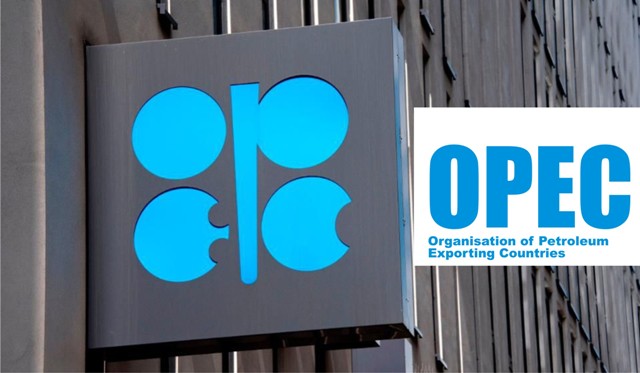Business
Nigeria To Take Favourable Positions At OPEC+Meeting

The Minister of State for Petroleum Resources, Chief Timipre Sylva, says Nigeria will take positions that will favour its economic forecast at the upcoming OPEC+Meeting .
Sylva gave the assurance in a statement he signed in Abuja, yesterday.
“As Minister of State for Petroleum, I will continue to monitor the impact of COVID-19 on our and the global, economy.
“In our consultations with global industry stakeholders in the lead up to the OPEC+ meeting scheduled for April 9, the Nigerian Government will take a position that is in the best interest of our short term and long term economic forecast,” he said.
He assured Nigerians and International communities that the county was watching developments in the oil and gas industry with keen interest.
Specifically, Nigeria is very mindful and appreciative of the role of Saudi Arabia and other members of the OPEC family,” he added.
Sylva noted that Nigeria had always collaborated with key OPEC members such as Saudi Arabia in maintaining a balanced position that had helped to make OPEC one of the most successful global institutions in recent history.
According to him, Nigeria intends to maintain this team spirit even as it takes into account the position of OPEC strategic allies such as Russia.
“As always, the driving force of our OPEC policy is first the stability of our national economy as well as the stability of the global economy which is heavily dependent on OPEC and it’s strategic partners, popularly referred to as OPEC+.
“Nigeria, like the rest of the world, has been hit by the Global Pandemic COVID-19 and is prepared to join the rest of the world in making the necessary sacrifices needed to stabilize the crude oil market; and to prevent what is likely to be a major global economic meltdown,” he said.
The Tide reports that the virtual meeting, which was called by Saudi Arabia, comes after President Donald Trump suggested that massive production cuts could be on the way and Saudi Arabia called for an “urgent” effort to restore “balance” to the oil market.
Saudi Arabia last Thursday called for an emergency meeting of the OPEC and non-OPEC producers including Russia, saying it aimed to reach a fair agreement to stabilise oil markets that have crashed on the demand impact from the coronavirus pandemic.
Prices have also been crushed after Saudi Arabia and Russia failed to agree on output curbs in March.
Business
Agency Gives Insight Into Its Inspection, Monitoring Operations

Business
BVN Enrolments Rise 6% To 67.8m In 2025 — NIBSS

The Nigeria Inter-Bank Settlement System (NIBSS) has said that Bank Verification Number (BVN) enrolments rose by 6.8 per cent year-on-year to 67.8 million as at December 2025, up from 63.5 million recorded in the corresponding period of 2024.
In a statement published on its website, NIBSS attributed the growth to stronger policy enforcement by the Central Bank of Nigeria (CBN) and the expansion of diaspora enrolment initiatives.
NIBSS noted that the expansion reinforces the BVN system’s central role in Nigeria’s financial inclusion drive and digital identity framework.
Another major driver, the statement said, was the rollout of the Non-Resident Bank Verification Number (NRBVN) initiative, which allows Nigerians in the diaspora to obtain a BVN remotely without physical presence in the country.
A five-year analysis by NIBSS showed consistent growth in BVN enrolments, rising from 51.9 million in 2021 to 56.0 million in 2022, 60.1 million in 2023, 63.5 million in 2024 and 67.8 million by December 2025. The steady increase reflects stronger compliance with biometric identity requirements and improved coverage of the national banking identity system.
However, NIBSS noted that BVN enrolments still lag the total number of active bank accounts, which exceeded 320 million as of March 2025.
The gap, it explained, is largely due to multiple bank accounts linked to single BVNs, as well as customers yet to complete enrolment, despite the progress recorded.
Business
AFAN Unveils Plans To Boost Food Production In 2026
-

 News3 days ago
News3 days ago2026 Budget: FG Allocates N12.78bn For Census, NPC Vehicles
-

 Sports3 days ago
Sports3 days agoAFCON: Osimhen, Lookman Threaten Algeria’s Record
-

 Politics3 days ago
Politics3 days agoWike’s LGAs Tour Violates Electoral Laws — Sara-Igbe
-

 Politics3 days ago
Politics3 days agoRivers Political Crisis: PANDEF Urges Restraint, Mutual Forbearance
-

 Sports3 days ago
Sports3 days agoArsenal must win trophies to leave legacy – Arteta
-

 Sports3 days ago
Sports3 days agoPalace ready To Sell Guehi For Right Price
-

 Sports3 days ago
Sports3 days agoNPFL To Settle Feud between Remo Stars, Ikorodu City
-

 Sports3 days ago
Sports3 days agoTottenham Captain Criticises Club’s Hierarchy

